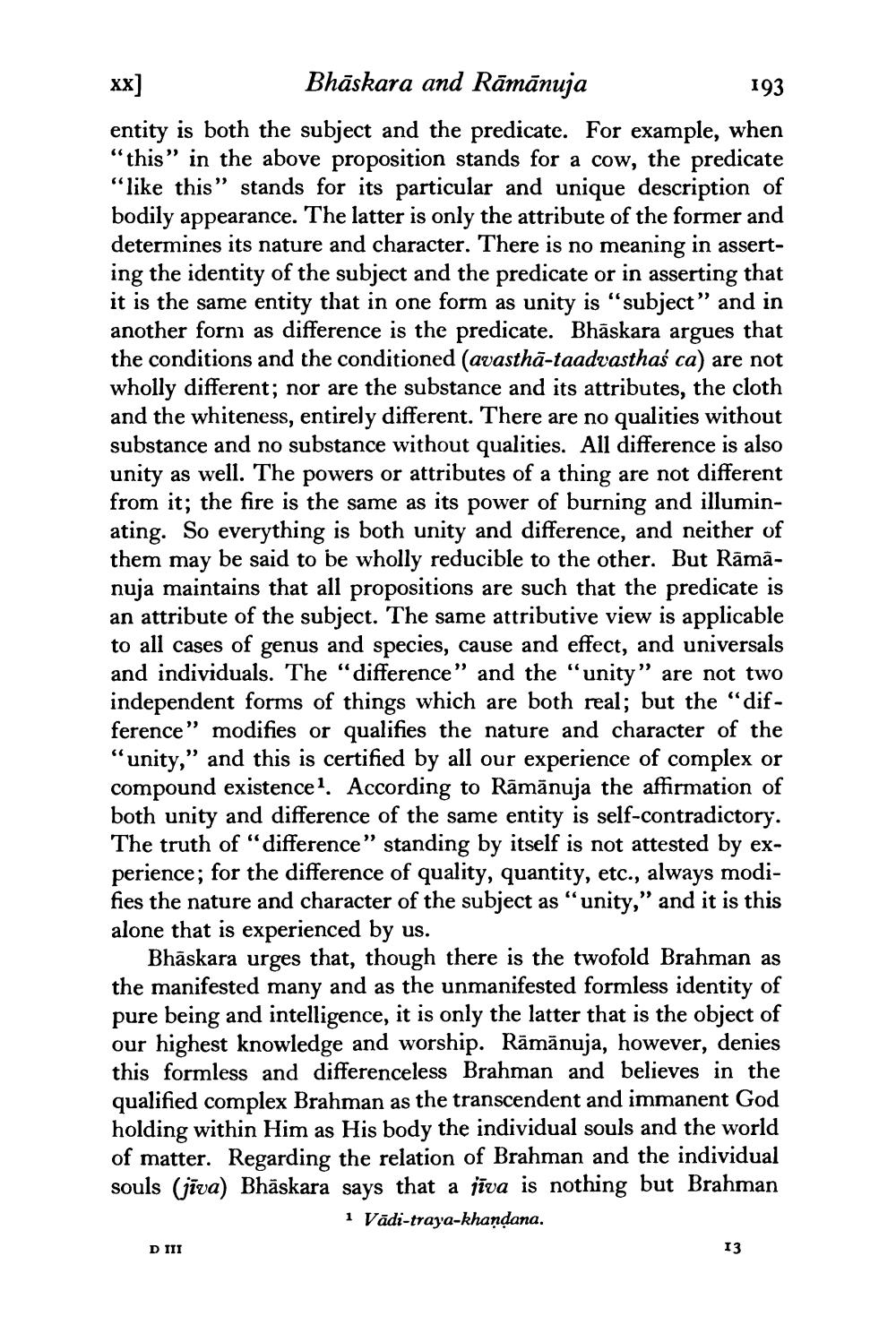________________
xx] Bhāskara and Rāmānuja
193 entity is both the subject and the predicate. For example, when "this” in the above proposition stands for a cow, the predicate "like this” stands for its particular and unique description of bodily appearance. The latter is only the attribute of the former and determines its nature and character. There is no meaning in asserting the identity of the subject and the predicate or in asserting that it is the same entity that in one form as unity is "subject" and in another form as difference is the predicate. Bhāskara argues that the conditions and the conditioned (avasthā-taadvasthaś ca) are not wholly different; nor are the substance and its attributes, the cloth and the whiteness, entirely different. There are no qualities without substance and no substance without qualities. All difference is also unity as well. The powers or attributes of a thing are not different from it; the fire is the same as its power of burning and illuminating. So everything is both unity and difference, and neither of them may be said to be wholly reducible to the other. But Rāmānuja maintains that all propositions are such that the predicate is an attribute of the subject. The same attributive view is applicable to all cases of genus and species, cause and effect, and universals and individuals. The "difference" and the "unity" are not two independent forms of things which are both real; but the “difference" modifies or qualifies the nature and character of the "unity," and this is certified by all our experience of complex or compound existence. According to Rāmānuja the affirmation of both unity and difference of the same entity is self-contradictory. The truth of "difference" standing by itself is not attested by experience; for the difference of quality, quantity, etc., always modifies the nature and character of the subject as "unity," and it is this alone that is experienced by us.
Bhāskara urges that, though there is the twofold Brahman as the manifested many and as the unmanifested formless identity of pure being and intelligence, it is only the latter that is the object of our highest knowledge and worship. Rāmānuja, however, denies this formless and differenceless Brahman and believes in the qualified complex Brahman as the transcendent and immanent God holding within Him as His body the individual souls and the world of matter. Regarding the relation of Brahman and the individual souls (jīva) Bhāskara says that a jīva is nothing but Brahman
1 Vādi-traya-khandana.
D III




